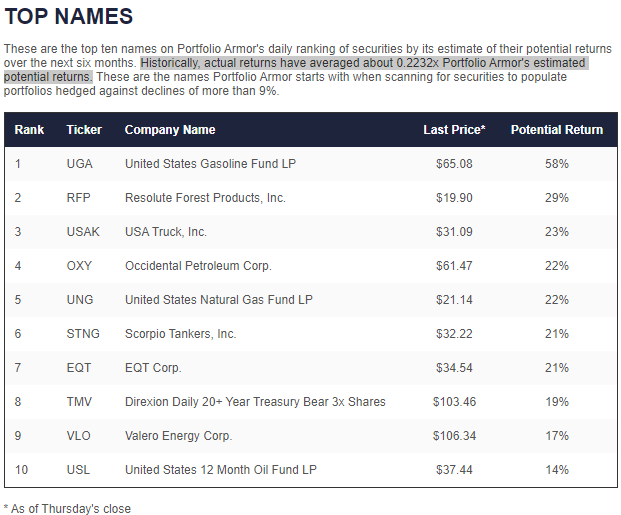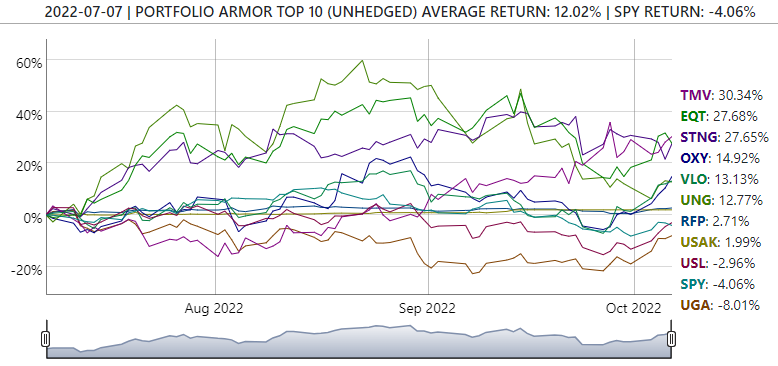Biden Draws Parallel To Cuban Missile Crisis
At a fundraiser in New York on Thursday, President Biden warned that we faced the threat of nuclear Armageddon for the first time since the Cuban Missile Crisis of 1962.
#BREAKING Biden says nuclear 'Armageddon' threat back for first time since Cuban Missile Crisis pic.twitter.com/YwkWHWhafV
— AFP News Agency (@AFP) October 7, 2022
Better late than never for him to acknowledge the risk, but what is he doing to prevent it? According to Bloomberg, Biden acknowledged that worse the war goes for Russia in the Ukraine, the greater the danger of nuclear war:
“We’re trying to figure out what is Putin’s off-ramp? Where does he get off? Where does he find a way out?” Biden said Thursday at a fundraiser in New York City. “Where does he find himself in a position that he does not, not only lose face but lose significant power in Russia?”
“He is not joking when he talks about potential use of tactical nuclear weapons or biological and chemical weapons, because his military is, you might say, significantly underperforming,” Biden added. “I don’t think there’s any such thing as the ability to easily use tactical nuclear weapons and not end up with Armageddon.”
Excerpt via Bloomberg
How Can Biden Prevent Armageddon?
According to Biden’s own logic, then, our military aid to the Ukrainian government is increasing the chance of nuclear Armageddon. What would Biden do if we wanted to prevent a nuclear war? Here is a reasonable approach:
- Appoint a Presidential envoy to engage in shuttle diplomacy. Rex Tillerson, the former Exxon CEO, Secretary of State, and Russian Order of Friendship awardee would seem like a reasonable choice.
- Quietly inform the Ukrainians that we will phase out military aid to them by a certain date several months out, and that they should negotiate a settlement with Russia before then.
- Tell the Russians that if they and the Ukrainians come to a mutually agreeable settlement by the same date, we’ll drop all sanctions on them. We’ll also agree that Ukraine will never be admitted to NATO, and we won’t station troops or weapons systems there.
“Quietly” is the key word in the second step, for two reasons. First, if the deadline for U.S. assistance were announced publicly, Russia could simply decide to wait it out. And second, if it were announced publicly, Ukrainian officials and Ukraine supporters in the West would attack Biden and his peace proposal as they attacked Elon Musk this week for his peace proposal.
Of course, it’s possible that Ukraine President Zelensky would make the deadline threat public himself, in the hopes of turning American hawks against Biden. If that happens, Biden can simply say that while he condemns Russia’s invasion, there are limits to what the United States is willing to do to defend the Ukrainians. He could note that we’ve already given them a dollar amount of aid larger than Russia’s entire annual defense budget.
If Zelensky makes the threat public, you can be sure Ukraine supporters in the West will argue that our terms were unfair, as it was Russia that invaded Ukraine and not the reverse. This is the simplistic, moralized view of the war I wrote about previously:
One [reason for Western hawks’ desire to escalate with Russia] is the way Ukraine officials and supporters have characterized the war in simplistic, moralistic terms: Russia, a big country headed by an autocrat, invaded smaller Ukraine, led by a democratically elected hero. We must support David against evil Goliath. Of course, as Columbia Professor Jeffrey Sachs pointed out in his Bloomberg appearance on Monday, the conflict goes back at least to 2014.
Similarly, Western media report Ukrainian claims of Russian atrocities, often without any attempt at verifying them. At the same time, they rarely report documented war crimes by the Ukrainian side. That’s left to independent journalists on the ground in Donbas such as Eva K. Bartlett, who documents a number of them in the thread below.
What I've seen of Ukraine's war crimes in the past few months:https://t.co/g1ETUIMw1U
— Eva Karene Bartlett (@EvaKBartlett) August 7, 2022This isn’t a Marvel movie, and we’re not supporting the good guys. This is a quasi-civil war between two closely-related countries that have similar issues with corruption and similar limits on political freedom.
At that point, President Biden could tell the hawks that they are welcome to enlist in the Ukrainian foreign legion if they want, and Zelensky is welcome to continue fighting Russia if he wants, but it will no longer be with American assistance.
Investing In The Shadow of Armageddon
Art Cashin, the Director of Floor Operations at the New York Stock Exchange for UBS and a frequent CNBC commentator, was a rookie trader during the Cuban Missile Crisis, and his story about it offers a useful lesson for today:
My father died when I was a senior in high school so I had to pass up the chance for a scholarship to college to work in Wall Street to help support the family. Most of what I learned came from sitting in saloons that had encyclopedias behind the bar – usually to settle bets.
The things I learned in the saloons were not the same things you learn in places like the Sloan School of Management – usually they were better.
For example there was the lesson I learned during the Cuban Missile Crisis. At the time I was studying with “Professor Jack” under a Moosehead, in a saloon called “Eberlin’s” down the block from the exchange. The tuition was paid in scotch “old fashions.” Classes lasted until either you ran out of money to buy drinks or Jack ran out of the ability to stand. Jack was actually a 62 year-old trader in silver stocks but he had more in his head than is in most university libraries.
Anyway, it was the Cuban Missile Crisis and there were rumors that Russia had launched rockets and the Dow took a dive near the bell.
I cleaned up my desk and raced to the Moosehead, as animated as only an 18 year-old can be. Jack was already there and as I burst through the door, I shouted: “Jack! Jack, there was a strong rumor that the missiles were flying and I tried to sell the market but failed.”
Jack said “Calm down kid! First buy me a drink and then sit down and listen to me.” I ordered the drink and meekly sat down.
Jack said – “Look kid, if you hear the missiles are flying, you buy them. You don’t sell them.”
“You buy them?” I said, somewhat puzzled.
“Sure you buy them!” said Jack. “Cause if you’re wrong, the trade will never clear. We’ll all be dead.”
That’s a lesson you won’t learn in the Wharton School.
Art Cashin quote via Barry Ritholz
With that in mind, here’s a look at the sort of names our system has been selecting during our current rendezvous with Armageddon. These were our top ten names three months ago:

Screen capture via Portfolio Armor on 7/7/2022
As you can see, we’ve been heavy on energy names such as Occidental Petroleum Corp. OXY and EQT Corp. EQT, and related names such as Scorpio Tankers, Inc. STNG, but we’ve also been short U.S. Treasuries via the Direxion Daily 20+ Year Treasury Bear 3x Shares ETF TMV.
Here’s how those top names have done since, versus the SPDR S&P 500 Trust ETF SPY:

On average, they were up 12.02%, as of Thursday’s close, while SPY was down 4.06% over the same time frame.
Edge Rankings
Price Trend
© 2025 Benzinga.com. Benzinga does not provide investment advice. All rights reserved.
Trade confidently with insights and alerts from analyst ratings, free reports and breaking news that affects the stocks you care about.